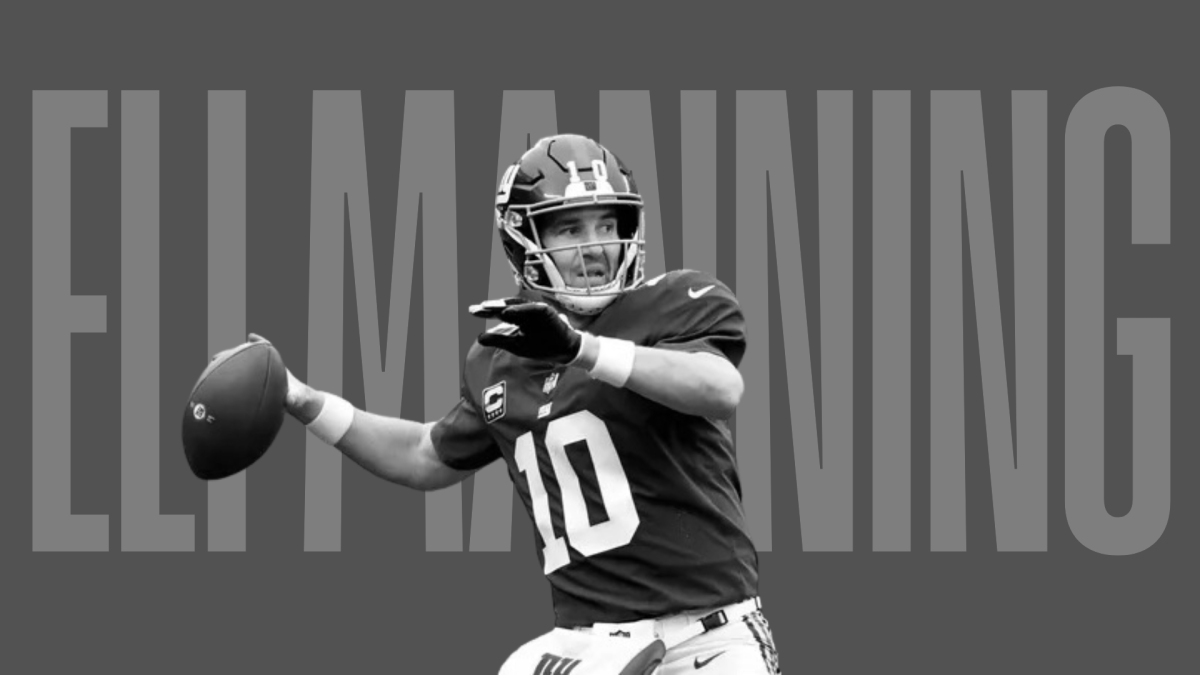Since before his retirement in 2020, Eli Manning’s Hall of Fame candidacy has been a hot topic of discussion among the New York Giants faithful. The Big Blue community remembers his victories over Tom Brady and the New England Patriots in Super Bowls XLII and XLVI with fondness and adoration. His 16-year career with the Giants was a model for consistency, as he never missed a game due to injury, playing 210 consecutive games (tied for the 10th longest streak in NFL history). But it was not meant to be at the 2025 NFL Honors, where this year’s Hall of Fame class was announced. Enshrinees include Eric Allen, Jared Allen, Antonio Gates and Sterling Sharpe, but Manning’s name was missing from the list. In his first year of eligibility, he failed to reach the 80% voting threshold for enshrinement.
Manning’s case is a difficult one, but let’s start with his positives. His greatest moments were truly the peak of what football players chase for their whole careers. In his first Super Bowl, he got the job done against one of the greatest teams football has ever seen in the 2007 Patriots, the first team to ever go 16-0 in the regular season. Brady had the best passing season of his career, becoming the first quarterback to throw 50 touchdowns in a single season. And yet, miraculously (and helped a great deal by David Tyree’s famous Helmet Catch), Manning and his Giants bested New England 17-14 to claim their third Vince Lombardi Trophy in franchise history. Manning won his first Super Bowl Most Valuable Player award. Then, four years later, Big Blue returned to the top, getting the better of Brady and the Patriots in the Big Game once again, 21-17. Manning took home the game’s MVP honors a second time. In the two biggest games of his life, Manning cemented himself in sports history, making the Goliath-esque Patriots look human.
Let’s look at some numbers. Manning is one of 13 quarterbacks with more than one Super Bowl win, and one of six with multiple Super Bowl MVPs. Of those 13 quarterbacks to win multiple rings, seven are in the Hall of Fame already, and several others are expected to be inducted in the years to come. He is 11th all-time in career passing yards with 57,023, and 11th all-time in career passing touchdowns with 366. In total, he had six playoff berths, with three division titles, two Super Bowl appearances and two Super Bowl rings.
Everything listed above makes it sound like Manning should be a shoo-in for the Hall of Fame, but there are numerous arguments against his enshrinement. His career regular-season record of 117-117 is average, and his career passer rating of 84.1 is 60th all-time and considered modest. Manning never received a regular-season MVP vote, and he was named to just four Pro Bowls in his 16 seasons.
All that being said, one of the biggest takeaways that we should have from Manning’s career is that certain things cannot be measured with numbers or statistics. Manning’s name will forever live in the sports history books for what he did on the biggest stage, stopping the greatest quarterback of all time from getting a perfect 19-0 season. And then he did it again four years later.
Additionally, consistency at the quarterback position is extremely important for keeping a team competitive. The Giants were able to rely on Manning’s constant availability for the entirety of his career. As they say, the best ability is availability, and Manning wielded that ability for an entire era of Giants football. His regular-season statistics might not have been the flashiest, but he got the job done when it mattered. Hopefully, in the coming years, we will be able to witness Manning don the gold jacket, joining his brother Peyton and the rest of football immortality.






































































































































































































